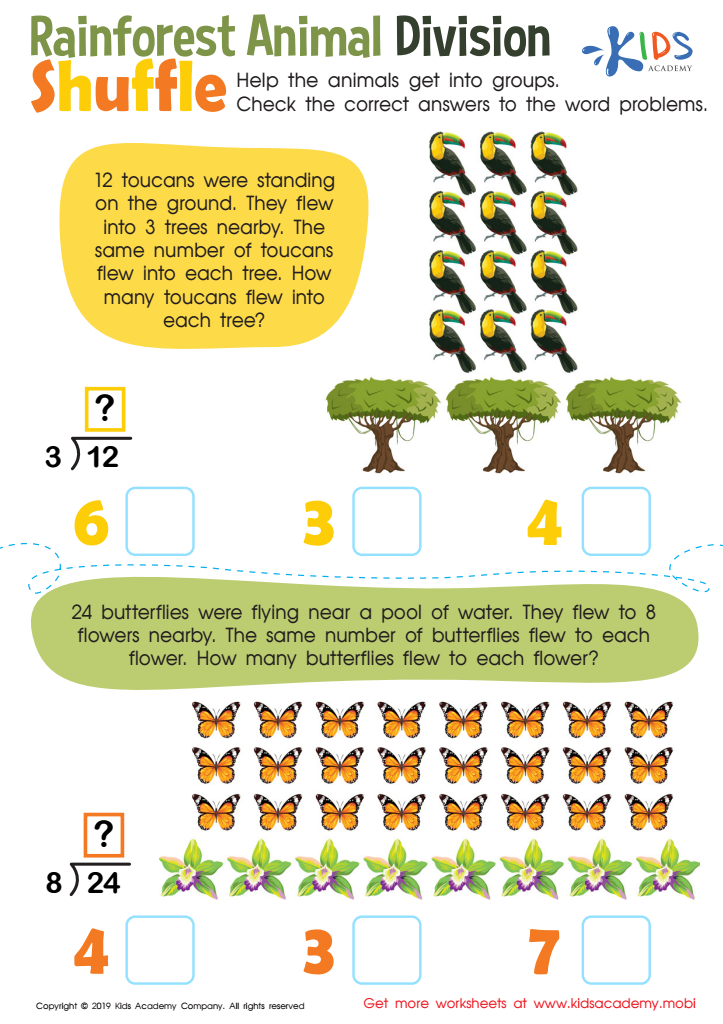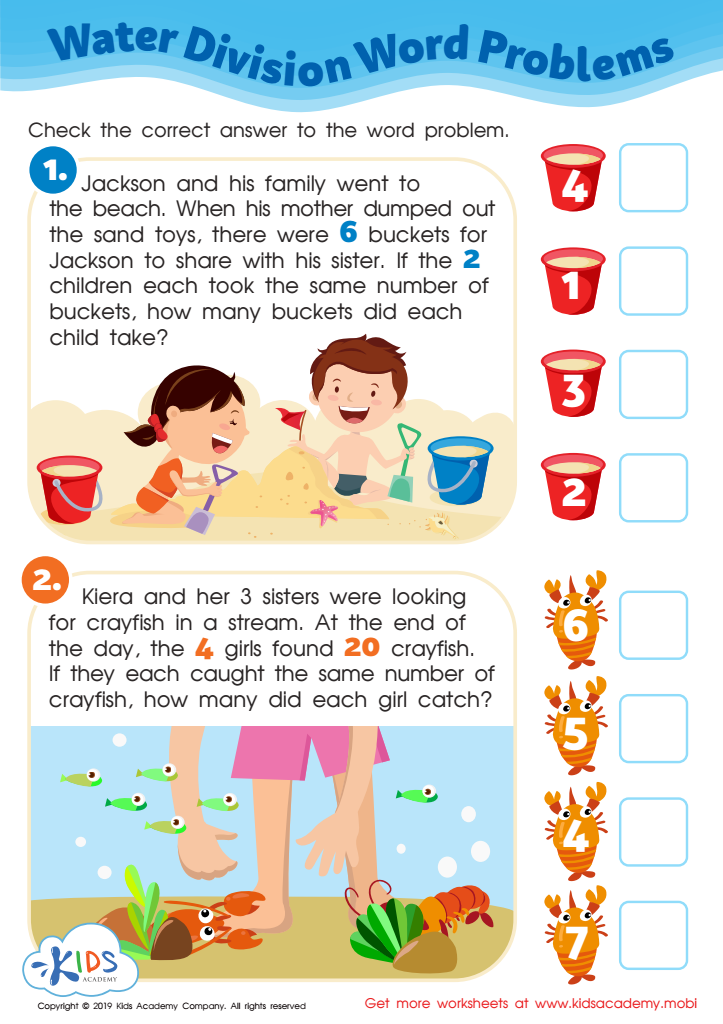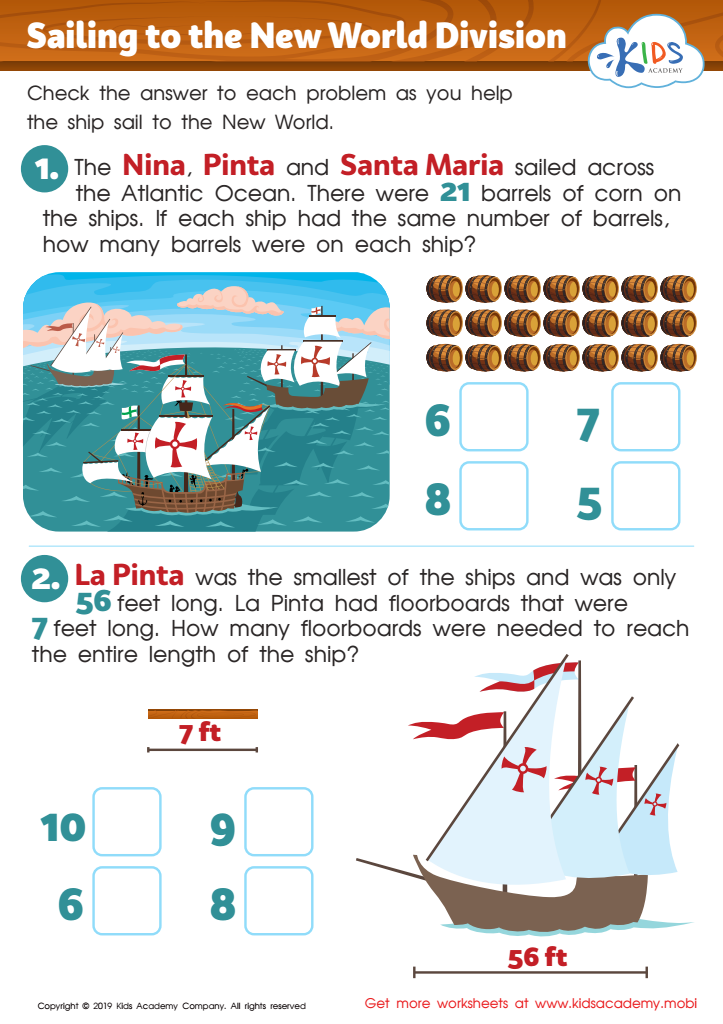Division practice Normal Word Problems Worksheets for Ages 4-9
4 filtered results
-
From - To
Our Division Practice Normal Word Problems Worksheets for ages 4-9 are designed to make learning division engaging and fun for young learners. These printable activities feature real-life scenarios that help children understand the practical applications of division, strengthening their problem-solving and critical-thinking skills. Each worksheet is crafted to cater to various skill levels, gradually increasing in complexity to build confidence. Perfect for classroom use or at-home practice, these resources make mastering division concepts an enjoyable and rewarding experience. Download them today to support your child's mathematical journey with interactive and effective practice!


Rainforest Animal Division Worksheet


Enrichment -2 Step Word Problems Worksheet


Water Division Word Problems Worksheet


Sailing to the New World Division Worksheet
Parents and teachers should understand the importance of division practice through normal word problems for children aged 4-9 because it builds foundational mathematical skills essential for future academic success. At this early stage, children are developing their understanding of numbers, mathematical operations, and problem-solving strategies. Introducing division through word problems serves multiple educational purposes.
Firstly, word problems help young learners connect mathematical concepts to real-life situations, making math more relatable and engaging. This context helps them grasp the practicality of division, ensuring a deeper understanding of the operation. Secondly, solving these problems enhances critical thinking and reasoning abilities. Children learn to break down the problem, identify the necessary steps, and apply suitable strategies to find a solution.
Further, consistent practice enhances computational fluency, allowing children to solve problems more efficiently over time. It also promotes persistence and resilience, as students navigate through challenges and build confidence in their mathematical abilities.
Lastly, early exposure to division through word problems aligns with curriculum standards and prepares students for more complex mathematical tasks they will encounter in higher grades. By fostering these skills early on, parents and teachers lay a solid foundation that supports long-term academic growth and a positive attitude towards mathematics.
 Assign to My Students
Assign to My Students
















